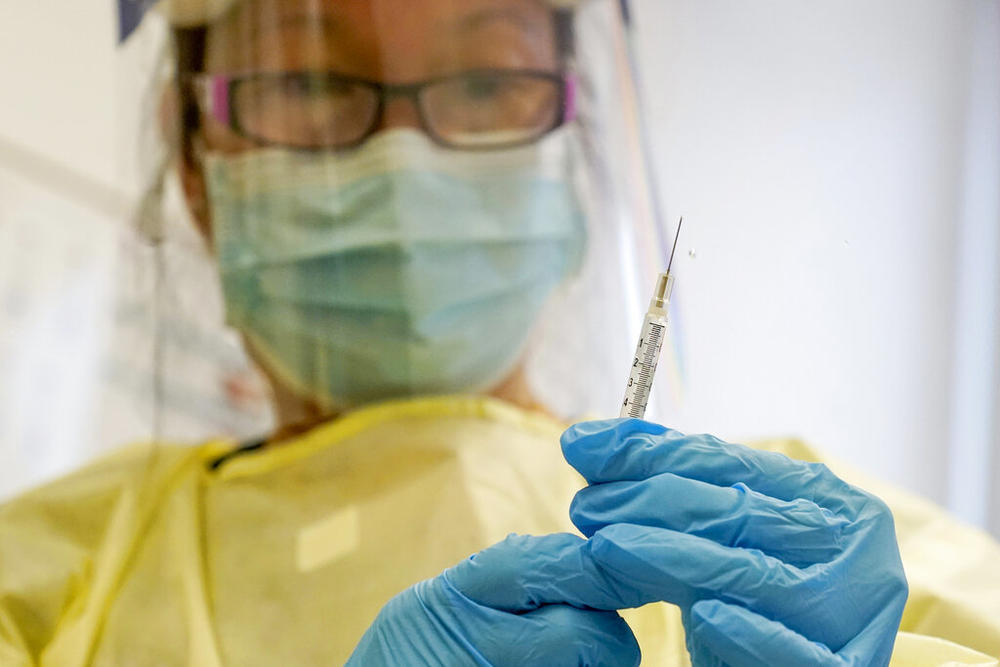
Caption
A physician assistant prepares a syringe with the Mpox vaccine for a patient at a vaccination clinic in New York on Friday, Aug. 19, 2022.
Credit: AP Photo/Mary Altaffer, File

A physician assistant prepares a syringe with the Mpox vaccine for a patient at a vaccination clinic in New York on Friday, Aug. 19, 2022.
The virus formerly known as monkeypox is no longer a public health emergency, effective after Jan. 31, 2023, following a drop in cases, according to the U.S. Department of Health and Human Services.
HHS Secretary Xavier Becerra said in December that the department would continue to monitor case trends closely and encourage all at-risk individuals to get a free vaccine.
"As we move into the next phase of this effort, the Biden-Harris administration continues working closely with jurisdictions and partners to monitor trends, especially in communities that have been disproportionately affected," Becerra said in a statement.
As of Feb. 1, the state of Georgia has reported 1,987 cases of mpox since the virus first appeared last May. The majority of those infections were reported among people in the metro Atlanta area.
The World Health Organization said the preferred term “mpox” is a synonym for monkeypox, which will be phased out over the next year.
After the outbreak of monkeypox, epidemiologists quickly saw that the most affected individuals are Black men who have sex with men. Reports of racist and stigmatizing language online, in other settings and in some communities, led WHO to change the name.
Roughly 2% of mpox infections have been among women. Additionally, about 60% of people infected also tested positive for HIV, and 50% of people with mpox had a sexually transmitted infection within the last year.
Mpox was first discovered in 1958 when two outbreaks of a pox-like disease occurred in colonies of monkeys kept for research, thus leading to the naming of the disease.
The virus originates in various wild animals, not only monkeys, and can be transmitted if a person comes into contact with the virus from an animal, a human or contaminated materials. Prolonged skin-to-skin contact is required.
You can recognize potential monkeypox infection based on the similarity of its clinical course to that of ordinary discrete smallpox, the Centers for Disease Control and Prevention said.
After infection, there is an incubation period of roughly one to two weeks, before the development of symptoms such as fever, malaise, headache, weakness, etc. Shortly afterward, lesions and a rash appears develop and evolve together on any given part of the body. The evolution of lesions progresses through four stages — macular, papular, vesicular, to pustular — before scabbing over and resolving.
The illness typically lasts two to four weeks. None of the infected Georgians have died.
Testing and a vaccine for mpox have been available in Georgia since August 2022.
The U.S. Food and Drug Administration approved in 2019 the Jynneos vaccine for the prevention of smallpox and monkeypox disease in adults 18 years of age and older who are determined to be at high risk for smallpox or monkeypox infection.
This is the only currently FDA-approved vaccine for the prevention of monkeypox disease, and it is manufactured only by Bavarian Nordic.
The federal government allocated nearly 50,000 doses to Georgia, of which 13,876 arrived in Phase 1.